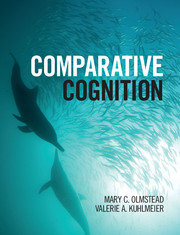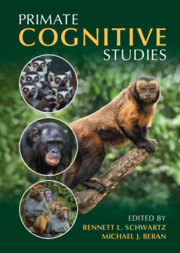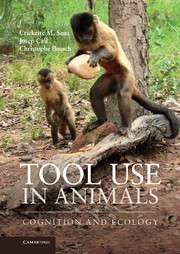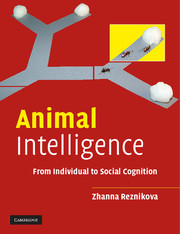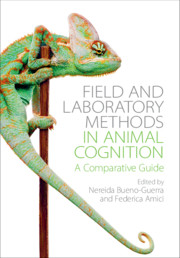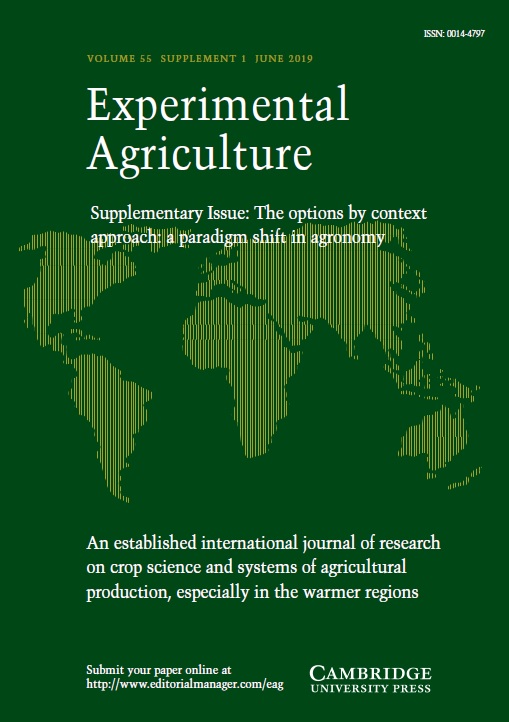Comparative Cognition
£45.99
- Authors:
- Mary C. Olmstead, Queen's University, Ontario
- Valerie A. Kuhlmeier, Queen's University, Ontario
- Date Published: January 2015
- availability: Available
- format: Paperback
- isbn: 9781107648319
£
45.99
Paperback
-
Integrating developments from psychology, ethology and neuroscience, this is an undergraduate introduction to cognitive processes across species. The authors merge classic studies and contemporary research to give students a full picture of the evolving field of comparative cognition. Engaging students in the discipline from its roots in animal learning and evolutionary biology through to current research, the chapters cover both controlled laboratory and comparative cross-species studies in the natural environment. This approach provides students with complementary ethological and neurobiological perspectives on cognition. Feature boxes encourage active and engaged learning, giving a deeper understanding of topics discussed in the main text. These are supported by end-of-chapter questions to check understanding and encourage wider thinking around topics. Online resources include solutions to questions in the book, advanced material, PowerPoint lecture slides and additional questions, all available at www.cambridge.org/cognition.
Read more- An undergraduate introduction, integrating classic studies and contemporary research in psychology, biology and neuroscience
- Incorporates both controlled laboratory studies of cognition and comparative cross-species studies in the natural environment, providing a balanced view of both ethological and neurobiological perspectives on the study of cognition
- Includes feature boxes, encouraging active and engaged learning, along with numerous end-of-chapter questions
- To view the authors' personal website for the text and connect with them and the larger community, visit http://comparative-cognition.com
Reviews & endorsements
'Comparative Cognition provides a clear and comprehensive review and an engaging synthesis of the key topics in this rapidly developing field. Like the other classic textbooks on animal cognition this book integrates knowledge of experimental psychology and evolutionary biology, reflecting the roots of this discipline in comparative psychology and ethology. It also contains a number of novel features, with its enhanced emphasis on both evolutionary function and the underlying neural mechanisms. These include feature boxes that describe key concepts in more detail, and researcher profiles that capture the contribution of some of the major figureheads in the field. A particular highlight is the series of questions at the end of each chapter, which encourage students to think more deeply about the issues raised, and to design experiments to test the competing hypotheses.' Nicola S. Clayton, University of Cambridge
See more reviews''What is it like to be a bat?' Thomas Nagel once posed this question as a thought experiment and in doing so neatly illustrated the fact that we will never be able to experience the world from another animal's perspective. Despite the daunting task, however, Comparative Cognition attempts to do just that. The authors bring decades of research and teaching experience in compiling this valuable volume. The book contains 13 chapters and covers the breadth of comparative cognition in an introductory format that is likely to suit third-year undergraduate university students. Each chapter has a chapter plan, summary points, and ends with a series of discussion topics and further reading. Key terms are highlighted in bold, and defined in a glossary at the end of the volume to help with tricky terminology that is typical of a multidisciplinary field. Learning and teaching is further enhanced with an online tool set including PowerPoint slides … It is perhaps the first textbook that assimilates knowledge from the rapidly developing, cross-disciplinary field of comparative cognition. As such it will be a valuable addition to bookshelf of both undergraduates and lecturers.' Culum Brown, The Quarterly Review of Biology
Customer reviews
Not yet reviewed
Be the first to review
Review was not posted due to profanity
×Product details
- Date Published: January 2015
- format: Paperback
- isbn: 9781107648319
- length: 481 pages
- dimensions: 245 x 190 x 23 mm
- weight: 1.03kg
- contains: 214 b/w illus. 1 table 128 exercises
- availability: Available
Table of Contents
Preface
1. History of comparative cognition
2. Sensory systems
3. Memory
4. Associative processes
5. Orientation and navigation
6. Timing and number
7. Decision making
8. Causality and tool use
9. Categorization and concept formation
10. Social competence
11. Prosocial behavior
12. Communication
13. Learning from others
References
Figure credits
Index.
Sorry, this resource is locked
Please register or sign in to request access. If you are having problems accessing these resources please email [email protected]
Register Sign in» Proceed
You are now leaving the Cambridge University Press website. Your eBook purchase and download will be completed by our partner www.ebooks.com. Please see the permission section of the www.ebooks.com catalogue page for details of the print & copy limits on our eBooks.
Continue ×Are you sure you want to delete your account?
This cannot be undone.
Thank you for your feedback which will help us improve our service.
If you requested a response, we will make sure to get back to you shortly.
×
